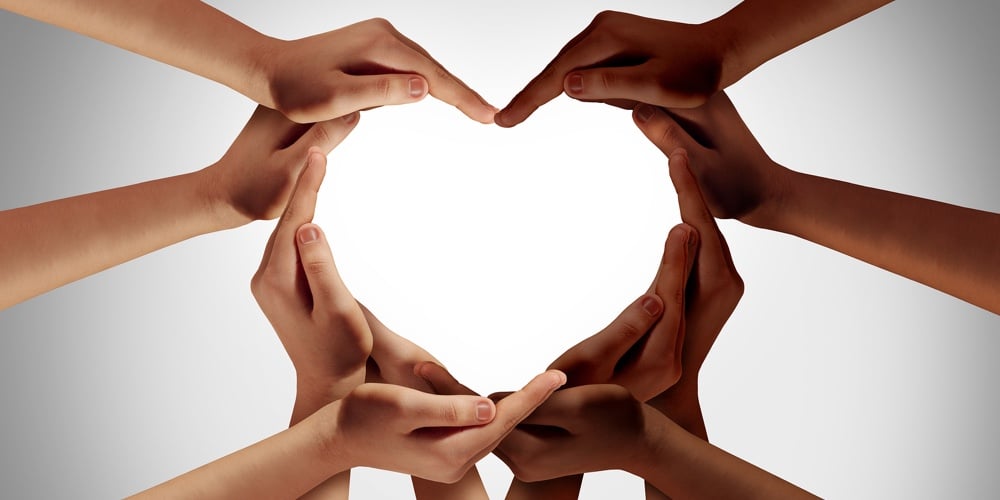Posting that meme doesn’t make you an ally

I’m no World War II historian. My rudimentary knowledge of history leaves me believing this, though: Showing up as one of the ally powers required more than just a statement of commitment.
FDR didn’t call Churchill to say, “Hey, bro, I’ve got your back. I can’t really understand what you’re going through, but man . . . thoughts and prayers, y’know? And if there’s anything I can do to help, you let me know. I’m here for you.”
It didn’t go that way because when an ally joined the forces, they were not joining someone else’s war: An ally joined the fight because the cause was their cause; they believed in the world they envisioned on the other side and could not tolerate the alternative that would exist if the wrong side won the war. There were sacrifices made, resources fully devoted, a commitment to victory no matter the cost.
The word “ally” is being thrown around a lot these days . . . mostly in labels that we white people apply to ourselves, tied to a hashtag or an inspirational quote. It doesn’t mean nothing, but it also doesn’t hold the power it should. We are calling ourselves allies without going beyond words of solidarity.
Don’t be mistaken: Solidarity is better than silence, but on its own, it isn’t action that affects change. It won’t help win the war against systemic racism. To get there, we must truly align with this cause. We must believe this fight is ours and we must act with a commitment equivalent to that belief.
Credit union leaders are uniquely positioned to be true allies in this fight and to leverage our personal and business resources for systemic change. Many of us as individuals have power or influence in our communities, as well as the privilege of being (well-compensated) executives in a movement that was built for the purpose of social change.
If dismantling systemic racism and the economic inequity that accompanies it is not our fight, what is?
Your public declaration of allyship shows what side you are on. Now, take the action that supports it by deciding what resources you’ll bring to this fight, both personally and organizationally. There are many lists available to share how white people can work toward anti-racism. Here are some credit union-specific ideas that also support your fight toward economic equality, access to financial services, and your desire to be a top employer:
- Join or start community coalitions that address community well-being and economic inequality and its root causes.
- Create safe spaces for your black employees to talk about their experiences. Listen with empathy and actively choose to relegate any leadership-centric approach (because statistically, most of your senior leadership is probably white).
- Participate in or offer Individual Development Account programs that help people obtain wealth-building assets for the first time in their families’ histories.
- Scrutinize lending policies and practices to ensure you are lending to minority-owned businesses and minority homebuyers.
- Have advisors (Board members, community partners, paid staff) that are of the community you want to serve. Listen to their input and look for ways to take action. If this is not happening or you don’t believe the talent is there in your community, access a resource that can help you look deeper.
- Support college scholarships for first-generation college students, at Historically Black Colleges and Universities, or through the United Negro College Fund (personally or through your credit union’s existing scholarship fund).
- Join the African American Credit Union Coalition or make a donation (personally or through your credit union). When you become a member, support their programs and build your knowledge, taking responsibility to better understand the experiences of our black colleagues in the credit union space.
- Educate yourself by reading work by black authors, watching documentaries by black filmmakers, or listening to podcasts by black producers. (A friend recently recommended 1619 to me, and I pass that on to you.)
- Shop at minority-owned businesses.
- Consider hosting a book circle to discuss your learning (personally or at your organization). I recommend Me & White Supremacy or Blind Spot to start, though the stack is growing daily. The Circle Way can provide a structure that gives equal voice to participants in these conversations. (If you have your own favorite learning tools, please use the comments below to share resources for the benefit of all.)
This list of ideas is infinitesimal compared to the work that lies ahead. Each bullet point is just one tiny action, but they are actions that may add up to something that matters if we all show up like the allies we have declared ourselves to be.
This credit union system is one that accomplishes much when we come together. I can’t imagine a finer bunch of allies or a better industry to work in for addressing systemic racism. If I can help you in taking action, please reach out: I’m ready to serve.





